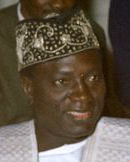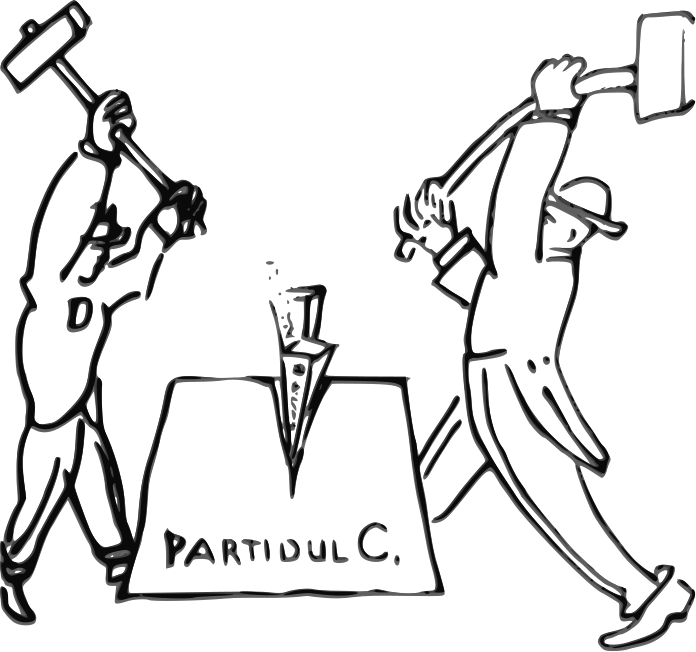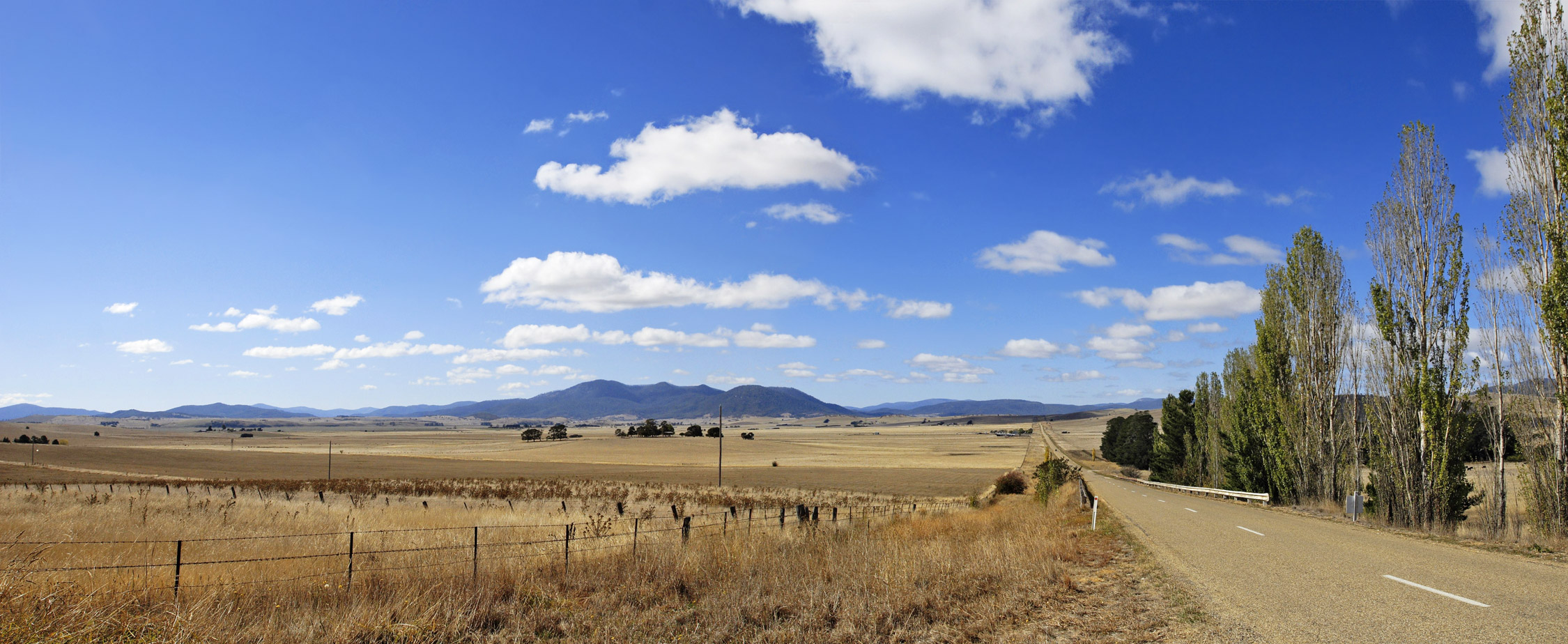|
Moussa Traoré
Moussa Traoré (25 September 1936 – 15 September 2020) was a Malian soldier, politician, and dictator who was President of Mali from 1968 to 1991. As a Lieutenant, he led the military ousting of President Modibo Keïta in 1968. Thereafter he served as head of state until March 1991, when he was overthrown by popular protests and a military coup. He was twice condemned to death in the 1990s, but eventually pardoned on both occasions and freed in 2002. He retired from public life and died in 2020. Early life Born in Kayes Region, Traoré studied at Kita and at the military academy in Fréjus, France. He returned to Mali in 1960, after its 1959 independence. He became second lieutenant in 1961, and lieutenant in 1963. He went to Tanganyika (which later together with Zanzibar formed the new state of Tanzania) as military instructor to its liberation movements. He then became instructor at the ''École militaire interarmes'' in Kati. Head of state, 1968–1991 On 19 November 196 ... [...More Info...] [...Related Items...] OR: [Wikipedia] [Google] [Baidu] |
President Of Mali
This is a list of heads of state of Mali since the country gained independence from France in 1960 to the present day. A total of seven people have served as head of state of Mali (excluding three acting presidents). Additionally, two people, Amadou Toumani Touré and Assimi Goïta, have served on two non-consecutive occasions. The current head of state of Mali is interim president Assimi Goïta, who took power for a second time on 24 May 2021, after dismissing previous interim president Bah Ndaw in the 2021 coup d'état. He has since been constitutionally declared interim president of Mali. Heads of state Titles * 1960–1965: Head of State * 1965–1968: President of the Republic * 1968–1969: Chairman of the Military Committee for National Liberation * 1969–1979: Head of State * 1979–1991: President of the Republic * 1991: Chairman of the National Reconciliation Council * 1991–1992: Chairman of the Transitional Committee for the Salvation of the People * 1992–2 ... [...More Info...] [...Related Items...] OR: [Wikipedia] [Google] [Baidu] |
Second Lieutenant
Second lieutenant is a junior commissioned officer military rank in many armed forces, comparable to NATO OF-1 rank. Australia The rank of second lieutenant existed in the military forces of the Australian colonies and Australian Army until 1986. In the colonial forces, which closely followed the practices of the British military, the rank of second lieutenant began to replace ranks such as ensign and cornet from 1871. New appointments to the rank of second lieutenant ceased in the regular army in 1986. Immediately prior to this change, the rank had been effectively reserved for new graduates from the Officer Cadet School, Portsea which closed in 1985. (Graduates of the Australian Defence Force Academy (ADFA) and the Royal Military College, Duntroon (RMC-D) are commissioned as lieutenants.). The rank of second lieutenant is only appointed to officers in special appointments such as training institutions, university regiments and while under probation during training. Tra ... [...More Info...] [...Related Items...] OR: [Wikipedia] [Google] [Baidu] |
Union Nationale Des Jeunes Du Mali
The National Youth Union of Mali (french: Union nationale des jeunes du Mali, abbreviated U.N.J.M.) was a youth organization in Mali Mali (; ), officially the Republic of Mali,, , ff, 𞤈𞤫𞤲𞥆𞤣𞤢𞥄𞤲𞤣𞤭 𞤃𞤢𞥄𞤤𞤭, Renndaandi Maali, italics=no, ar, جمهورية مالي, Jumhūriyyāt Mālī is a landlocked country in West Africa. Ma .... UNJM was the youth wing of the ruling (and sole legal political party in the country) UDPM.Ray, Donald I. Dictionary of the African Left: Parties, Movements and Groups'. Aldershot, Hants u.a: Dartmouth, 1989. p. 213 UNJM held its first national council meeting in 1979. Mahamadou Baba Diallo served as the general secretary of UNJM. UNJM published a monthly magazine called ''Sukaabé''.Barrat, Jacques. Diversité des tiers-mondes'. Paris: Éd. Litec, 1992. p. 388 References {{reflist Youth wings of political parties in Mali Youth organizations established in the 1970s 1979 establishments in Mali ... [...More Info...] [...Related Items...] OR: [Wikipedia] [Google] [Baidu] |
Democratic Centralism
Democratic centralism is a practice in which political decisions reached by voting processes are binding upon all members of the political party. It is mainly associated with Leninism, wherein the party's political vanguard of professional revolutionaries practised democratic centralism to elect leaders and officers, determine policy through free discussion, and decisively realise it through united action.Lenin, Vladimir (1906)"Report on the Unity Congress of the R.S.D.L.P." Marxists Internet Archive. Retrieved 14 February 2020. Democratic centralism has also been practised by social democratic and |
Democratic Union Of The Malian People
The Democratic Union of the Malian People (french: Union Démocratique du Peuple Malien, UDPM) was a military-backed political party in Mali. Its main organ was the daily newspaper ''L'Essor – La Voix du Peuple'', which had a circulation of 40,000. It was the largest newspaper in the country during the mid-1980s.''Hela Världen i Fakta '86''. Stockholm: Bonnier Fakta Bokförlag, 1985. p. 163 History The party was founded by the CMLN military junta in order to provide the regime with political legitimacy. Moussa Traoré announced the party's formation on 22 September 1975, with himself as general secretary.Imperato, Pascal James. ''Mali: A Search for Direction''. Boulder: Westview Press, 1989. Upon the restoration of civilian rule in 1979, it became the only legal party in Mali. The UDPM organized itself along the Marxist–Leninist principle of democratic centralism. However, as with many other African socialist parties, it did not identify itself as Marxist due to the per ... [...More Info...] [...Related Items...] OR: [Wikipedia] [Google] [Baidu] |
Malian Second Republic
Malian may refer to: * Malian, Iran (other), places in Iran with the name * Something of, from, or related to Mali, a country in West Africa * Something of, from, or related to the Malians (Greek tribe) in Ancient Greece * Something of, from, or related to the Mali Empire The Mali Empire (Manding: ''Mandé''Ki-Zerbo, Joseph: ''UNESCO General History of Africa, Vol. IV, Abridged Edition: Africa from the Twelfth to the Sixteenth Century'', p. 57. University of California Press, 1997. or Manden; ar, مالي, Māl� ..., a medieval West African civilization from c. 1247 to c. 1600 See also * List of all pages beginning with "Malian" {{disambig Language and nationality disambiguation pages ... [...More Info...] [...Related Items...] OR: [Wikipedia] [Google] [Baidu] |
Drought
A drought is defined as drier than normal conditions.Douville, H., K. Raghavan, J. Renwick, R.P. Allan, P.A. Arias, M. Barlow, R. Cerezo-Mota, A. Cherchi, T.Y. Gan, J. Gergis, D. Jiang, A. Khan, W. Pokam Mba, D. Rosenfeld, J. Tierney, and O. Zolina, 2021Water Cycle Changes In Climate Change 2021: The Physical Science Basis. Contribution of Working Group I to the Sixth Assessment Report of the Intergovernmental Panel on Climate Change [Masson-Delmotte, V., P. Zhai, A. Pirani, S.L. Connors, C. Péan, S. Berger, N. Caud, Y. Chen, L. Goldfarb, M.I. Gomis, M. Huang, K. Leitzell, E. Lonnoy, J.B.R. Matthews, T.K. Maycock, T. Waterfield, O. Yelekçi, R. Yu, and B. Zhou (eds.)]. Cambridge University Press, Cambridge, United Kingdom and New York, NY, USA, pp. 1055–1210, doi:10.1017/9781009157896.010. This means that a drought is "a moisture deficit relative to the average water availability at a given location and season". A drought can last for days, months or years. Drought ... [...More Info...] [...Related Items...] OR: [Wikipedia] [Google] [Baidu] |
Police State
A police state describes a state where its government institutions exercise an extreme level of control over civil society and liberties. There is typically little or no distinction between the law and the exercise of political power by the executive, and the deployment of internal security and police forces play a heightened role in governance. A police state is a characteristic of authoritarian, totalitarian or illiberal regimes (contrary to a liberal democratic regime). Such governments are typically one-party states, but police-state-level control may emerge in multi-party systems as well. Originally, a police state was a state regulated by a civil administration, but since the beginning of the 20th century it has "taken on an emotional and derogatory meaning" by describing an undesirable state of living characterized by the overbearing presence of civil authorities. The inhabitants of a police state may experience restrictions on their mobility, or on their fre ... [...More Info...] [...Related Items...] OR: [Wikipedia] [Google] [Baidu] |
1968 Malian Coup D'état
The 1968 Malian coup d'état was a bloodless Malian Armed Forces, military coup d'état, coup in Mali staged on 19 November 1968 against the government of President Modibo Keïta. The coup was led by Lieutenant (later Major General) Moussa Traoré, who then became the head of state. Background File:Keita, 1966 (cropped).jpg, President Modibo Keïta in 1966 File:Moussa Traoré (1989) (cropped).jpg, The leader of the putschists, Moussa Traoré, in 1989. File:Tiécoro Bagayoko.jpg, Another putschist, Tiécoro Bagayoko, in the 1970s. President Keïta, father of Malian independence, had ruled a socialist government since 1960, supported by his party, the Sudanese Union – African Democratic Rally (US-RDA). However, his politics faced economic difficulties. In 1966, he suspended the constitution and the parliament, replaced by a ''Comité National de Défense de la Révolution'' with full powers. The population was increasingly dissatisfied by the government. A coup was plotted by Ma ... [...More Info...] [...Related Items...] OR: [Wikipedia] [Google] [Baidu] |
Tanzania
Tanzania (; ), officially the United Republic of Tanzania ( sw, Jamhuri ya Muungano wa Tanzania), is a country in East Africa within the African Great Lakes region. It borders Uganda to the north; Kenya to the northeast; Comoro Islands and the Indian Ocean to the east; Mozambique and Malawi to the south; Zambia to the southwest; and Rwanda, Burundi, and the Democratic Republic of the Congo to the west. Mount Kilimanjaro, Africa's highest mountain, is in northeastern Tanzania. According to the United Nations, Tanzania has a population of million, making it the most populous country located entirely south of the equator. Many important hominid fossils have been found in Tanzania, such as 6-million-year-old Pliocene hominid fossils. The genus Australopithecus ranged across Africa between 4 and 2 million years ago, and the oldest remains of the genus '' Homo'' are found near Lake Olduvai. Following the rise of ''Homo erectus'' 1.8 million years ago, humanity sprea ... [...More Info...] [...Related Items...] OR: [Wikipedia] [Google] [Baidu] |



